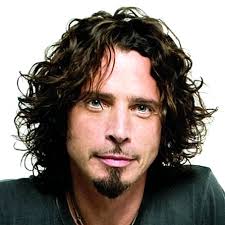 When we lose a music legend like Chris Cornell at a young age, the initial reports often describe the death as sudden or surprising, if there is any comment at all. “Cause of death” is rarely included – at least initially. Understandably, there must first be a formal investigation. For those of us who live with suicide, the waiting for cause of death, or ultimately the omission of a cause of death once verified, reverberate intensely. It has nothing to do with the deceased being a rock star. We feel that same omission, but without any expectation of more information to come, in the untimely obituary of the doctor or lawyer, the mother or husband, the soldier or veteran, the teenager – where no cause of death is mentioned. We fill in the blanks with our own experiences of suicide, Depression, abuse, addiction, and what it means to still be here when someone we love takes his own life. We know it’s complicated. We know people feel shame, confusion, guilt, and blame that exacerbate the incredible sense of loss. We know it is difficult to put into words. We know society doesn’t understand and doesn’t want to deal with our tragedy. We understand that omission – because it mirrors our own sense of loss. When we lose celebrities, however, there’s a different and more troubling pattern. As a society, we are quick to wrap celebrity suicide into a neat box so we don’t have to deal with the complexity of its reality. We summarize their deaths with a ready and familiar story – a cliché of the partying, addicted, immature, or otherwise angst-ridden, but privileged celebrity. Perhaps we even perversely glorify their deaths by throwing around words like “genius” or “artist” as if that explains it all away. Instead of the omission of information giving us permission to avoid reality, the cliché gives us such an exemption. No matter what comes of this story, we can do more to celebrate and extend the life and work of Chris Cornell today than going and downloading more of his music. We can talk about his struggles with addiction, mental health, and probable suicide, and try to understand him and understand ourselves in more complex, messy, deeply human terms. In doing so, we may actually give his life greater meaning than his music ever will.
1 Comment
10/16/2019 07:41:32 pm
This is just the information I am finding everywhere. Thanks for your blog, I just subscribe your blog. This is a nice blog..
Reply
Leave a Reply. |
Categories
All
Archives
April 2024
|
 RSS Feed
RSS Feed